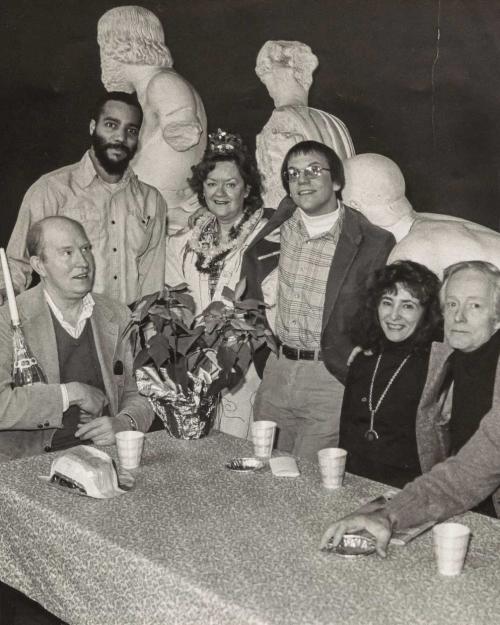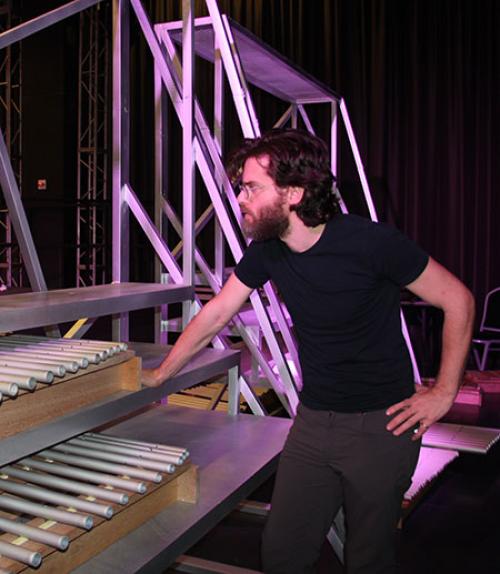Mila, a chamber opera with music by Eli Marshall, postdoctoral associate and visiting faculty member in the Department of Music, recently received its world premiere in Hong Kong. The show has received international attention, including a review in Time Magazine, which praised it as “quirky, quintessentially Hong Kong, and bold…[it] must be one of the first of its kind anywhere to use opera to confront the problems of modern-day domestic workers.”
The musical techniques, tuning systems and instruments for the opera were drawn from research Marshall has conducted at Cornell. He incorporated specially-designed acoustic instruments with nearly one hundred each of wooden keys and aluminum chimes, along with bottles, kitchen supplies, and other instruments, and two pianos, one tuned so that its pitches fit “in between” those of the other.
“This ‘microtonal’ approach was inspired by mid-20th century iconoclasts such as Harry Partch, but also has deep roots in notated music history and in folk traditions,” says Marshall, who has incorporated the approach into his music theory courses and composition teaching at Cornell.
Maria Theresa Centeno (“Tess”) Savella, senior lecturer in the Department of Asian Studies, provided language and contextual support with Tagalog for the opera. Tagalog is the official language of the Philippines and is spoken by most of that country’s domestic workers abroad.
“Her help, and that of Stefanie Quintin who sang the role of Mila, was invaluable, giving me a head start in understanding both the meaning and spirit of the language,” Marshall says. “It’s rare for any U.S. university to have a full-time Tagalog lecturer of Tess’s caliber; in this sense Cornell’s storied commitment to Southeast Asian studies pays off in unexpected ways — even for a contemporary opera in Hong Kong.”
A contemporary work in one act (and three languages), the opera features vocalists from Hong Kong, the Philippines, and America, and was commissioned by the Asia Society Hong Kong Center. The libretto was written by Hong Kong’s Candace Chong; and stage direction was by Chan Chu-hei.
Marshall describes the opera as a “dark tragicomedy in which no one is ultimately the villain, and everyone sacrifices unfairly, but in which some sacrifice far more than others.” While the story of Mila, a domestic helper from the Philippines hired by a family in Hong Kong, touches on issues of social cohesion, the strains of multiculturalism, and Hong Kong’s “lost generation” of youth, its central theme is what Marshall calls “the ultimate sacrifice” of domestic workers abroad, who are often forced to abandon their own children only to raise someone else’s.
“It is this lopsided sacrifice which leads to our particular 21st century angst, not only in Hong Kong but, to some measure, everywhere,” says Marshall. “Each character in this opera is alienated from the results of their efforts, but fails to recognize this trait in anyone else. It is the migrant worker whose loss is most profound, and, until the final scene, not even fully apparent. The opera sheds light on a powerful, overlooked, everyday story in which we all play a part, one way or another.”
After four sold-out performances in Hong Kong, plans are being made to take the opera on an international tour, with likely stops in both the Philippines and New York City. More information can be found on the Asia Society Hong Kong's website.




